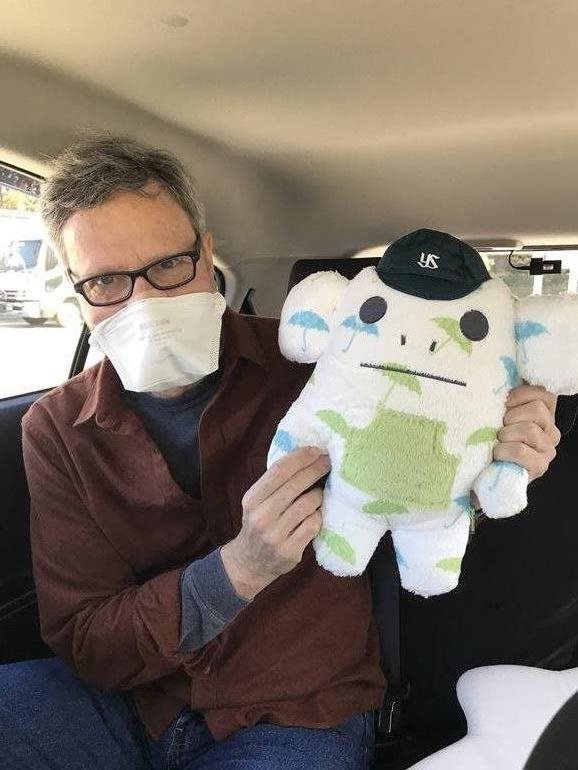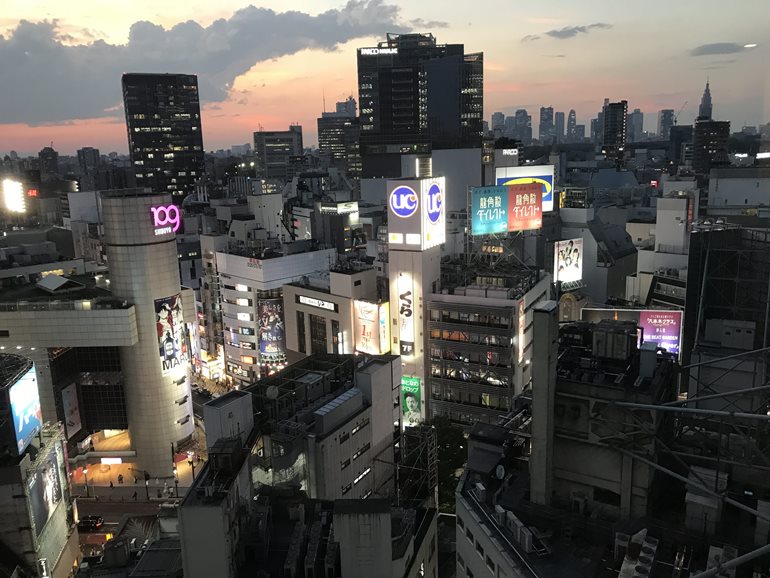
Dr. David Goldstein, teaching professor in the University of Washington Bothell’s School of Interdisciplinary Arts & Sciences, said his one regret from college was not studying abroad.
“I thought I couldn’t afford it, but I never looked into financial aid, scholarships or anything like that. If I did, I am sure I would have gone,” he said. “If I could go back in time and change one thing, that is what it would be. I would study abroad.”
While Goldstein didn’t get that experience as a student, through the Fulbright Program he got it as an educator. Each year, this prestigious U.S. government exchange program offers approximately 8,000 grants for U.S. citizens to go abroad and non-U.S. citizens to come to the United States to study, teach and conduct research. The goal, through these experiences, is to build a mutual understanding between people in the United States and those in other countries.
Goldstein received one of eight Fulbright awards given to U.S. scholars and went to Japan to teach U.S. studies during the 2021-22 academic year. It was his eighth trip to Japan, as he had gone seven times before for various UW projects, including a UW Study Abroad Exploration Seminar program in fall 2018.
This trip, however, the first time he would be teaching American studies courses in a foreign country.
Dramatic differences
Goldstein was placed at three different institutions for his Fulbright experience, including the University of Tokyo, Aoyama Gakuin University and Kanda University of International Studies.
“It was an opportunity of a lifetime,” he said. “I absolutely love Japan, and I have learned so much — about the country, about myself and about student learning. All of that has made me a better professor and will inform my teaching when I get back.”

According to Goldstein, the student experience in Japan is quite different from the student experience in the United States. For starters, in Japan, grades in middle and high school are taken far more seriously. “The goal is to get into the best university possible because once accepted, the grades don’t matter much,” he explained. “If you get a degree from a respected university you are set for life, even if you have a low grade point average.”
Teaching at the University of Tokyo, considered by many to be Japan’s most esteemed university, Goldstein assumed he would have to find new ways of motivating students to take their course work seriously. “Thankfully it was less of a problem than I expected because the students were very interested in American history and culture,” he said. “Most were majoring in English or North American studies and were more accustomed to active learning, such as contributing to small-group discussions.”
Also unlike the higher education in the United States, in Japan it’s uncommon for individuals to return to college later in life. “I started teaching at UW Bothell 25 years ago, and back then 60 to 75 percent of the population consisted of women who were returning to finish the degree they started decades ago but left to raise children,” Goldstein said. “That just really doesn’t happen in Japan. If you don’t go straight from high school, it is likely you won’t go at all.”
As a result, there is less diversity within Japanese classrooms as most students are not only the same age but are often also the same ethnicity. Goldstein said that 97 percent of his students were Japanese and the other three percent were either European or Chinese.
“Japanese society tends to emphasize conformity, and students often hesitate to share opinions that they think are outside the norm,” Goldstein said.
Open for interpretation
Despite the homogeny, the classroom conversations were enlightening. For example, Goldstein taught roughly the same curriculum in Japan that he teaches at UW Bothell but found the students reacted to the material in vastly different ways.
“My background is in reader-response criticism,” he said, “which means that I am interested in reader response. Two people can read the exact same story and come away with two totally different understandings because the stories are interpreted differently based on experience.”
Goldstein had his students in both the U.S. and Japan read Recitatif by Toni Morrison, a story about two girls who grow up together in an orphanage. One of the girls is Black and one of the girls is white, but Morrison does not establish who is which. “There are clues in the story, but it’s interesting that people only pick up on those that relate to their own background,” said Goldstein, whose Ph.D. dissertation was inspired by this very story. “The Japanese students didn’t share the same background as either character, but they often reacted similarly to the white, U.S. students as their understanding is largely shaped by American media.”
He recalled an example from the text in which the mothers return to the orphanage to visit their daughters and take them on a picnic. “One of the mothers brought a thermos full of milk. Generally speaking, only white descendants from Western Europe can digest milk. Most everyone else has intolerance to it,” he said. “This is a clue that many readers from different ethnicities pick up on, but that white readers miss because they assume everyone drinks milk.”
Another clue that is often interpreted differently depending on the reader’s background is a reference to one of the mothers wearing a big cross necklace. “The white readers tend to think of the stereotype of an African-American mother from a Black, Baptist church and assume that it’s the Black mother,” he said. “But none of the clues are conclusive — and it was meant to be that way,” he said.
Because the Japanese students understanding is largely based on American media, Recitatif reveals how harmful stereotypes are shared. “Morrison uses this technique to bring readers’ preconceptions to the surface,” Goldstein said. “Implicit biases are difficult to overcome because, by definition, we are unaware of them. We can’t counter our own biases if we are unaware of them.”
Seize the opportunity
The new experiences and insights Goldstein gained in Japan have furthered his passion for study abroad, and he is now planning to lead a 2023 spring break trip for UW Bothell students to Ehime Prefecture, located on the island of Shikoku in Southwestern Japan.

“Ehime is similar to the Puget Sound region in many ways. It is an intriguing blend of urban and rural spaces, away from the largest cities in Japan and surrounded by beautiful mountains and sea,” Goldstein said. “Like Western Washington, it is home to a unique culture that also has countless connections to the rest of the world. In fact, the founder of Uwajimaya, a popular Japanese food and goods stores in the Northwest, was from Ehime.”
Goldstein highly encourages current students to participate.
“I don’t want them to be like me — living with regret, wishing they would have taken the chance when they had it. Students, here is your chance. Seize the opportunity,” he said. “All UW-approved study abroad programs are eligible for financial aid, not to mention there are other supports at UW Bothell, especially through Global Initiatives, that can also make your trip possible.”



